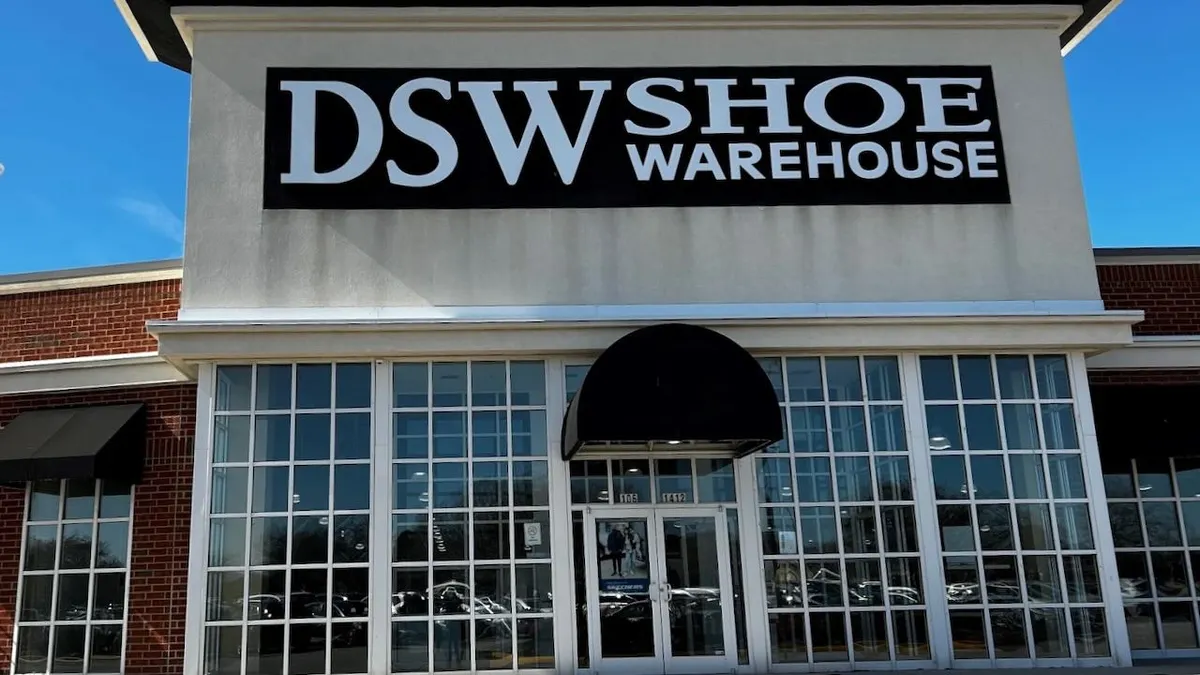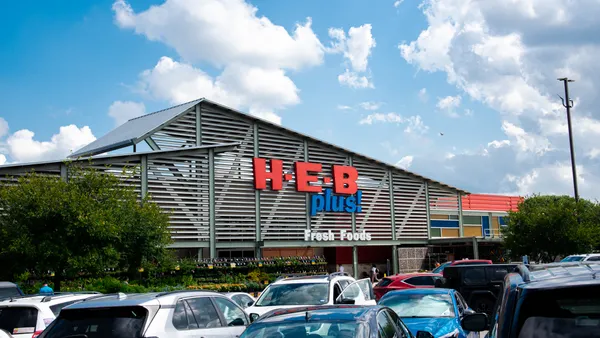Dive Brief:
- Designer Brands, which owns several footwear labels and retailer DSW, is continuing to shift U.S. inventory between digital fulfillment centers and store locations to optimize in-store product availability, according to a Sept. 9 earnings call.
- The company reported that fulfilling digital orders through its distribution centers is operationally more efficient than fulfilling from stores, CEO and director Douglas Howe told analysts.
- “In the second quarter, we fulfilled over 80% more of our digital demand through our logistics center compared to last year,” said Howe.
Dive Insight:
The adjustment has enabled Designer Brands to protect its in-store inventory while also prioritizing cost efficiencies, said Howe. Designer Brands’ in-stock levels of regular-priced products improved to about 70%, which Howe described as a “clear sign of progress in our inventory availability.”
Howe added that DSW has also been evolving its inventory assortment by strategically carrying fewer options, while increasing its stock of its most popular styles throughout the year. Looking ahead, DSW is focusing on the “highest areas of demand” as it evaluates its core styles, he noted.
“Our choice count for the back half of 2025 is planned down 25% versus last year, and our depth is planned up 15%, underscoring our focus on inventory productivity,” Howe said.
Howe also noted that Designer Brands ended the second quarter with total inventories down 5% year over year.
Several other companies have also been reevaluating their in-store fulfillment strategies in a bid to optimize supply chain operations. Target, for example, decided to scale back on its in-store fulfillment operations in favor of the customer retail experience. According to incoming CEO Michael Fiddelke, some stores are clearly “built to fulfill” while others are less equipped. In turn, Target is advising some stores to shut down their e-commerce packing stations and focus on other services, including pickup orders.
In 2022, Nordstrom Rack also began slowing in-store fulfillment to simplify operations and reduce the number of order cancellations. The retailer also raised the minimum purchase required for free ship-to-store delivery.















